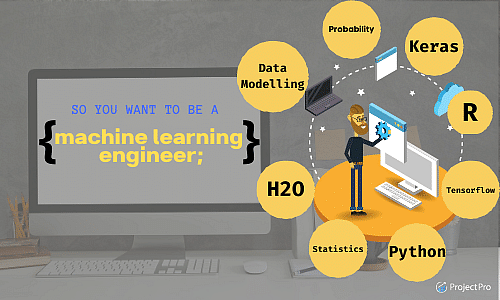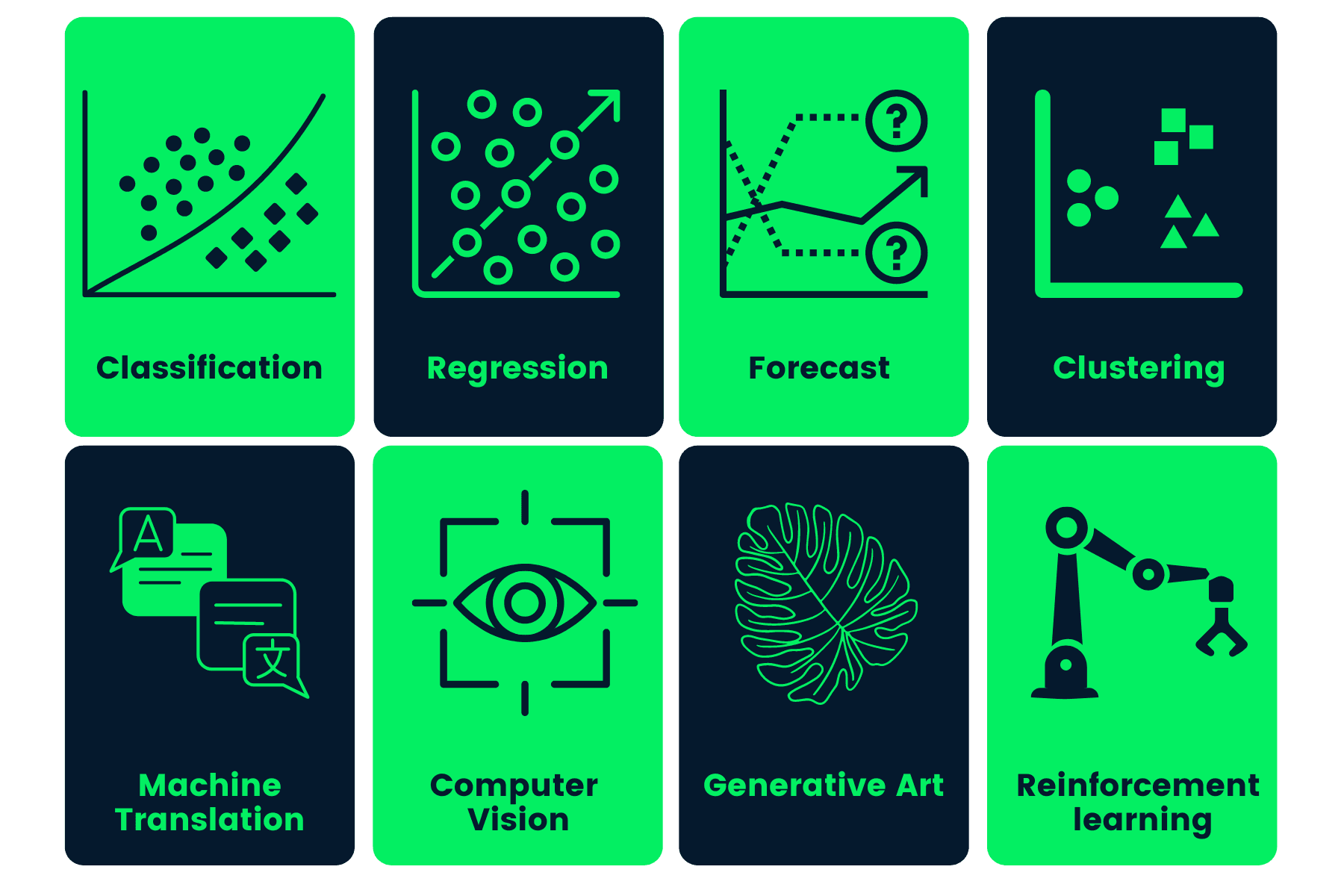All Categories
Featured
Table of Contents
To make sure that's what I would certainly do. Alexey: This comes back to one of your tweets or perhaps it was from your training course when you compare two strategies to learning. One method is the trouble based strategy, which you just spoke about. You discover a trouble. In this instance, it was some trouble from Kaggle concerning this Titanic dataset, and you just discover how to fix this trouble using a particular device, like decision trees from SciKit Learn.
You initially find out mathematics, or straight algebra, calculus. When you know the mathematics, you go to machine discovering theory and you learn the theory.
If I have an electric outlet here that I need changing, I do not want to most likely to university, invest 4 years understanding the math behind electrical energy and the physics and all of that, just to alter an electrical outlet. I prefer to begin with the outlet and discover a YouTube video clip that helps me go via the trouble.
Santiago: I truly like the concept of starting with a problem, trying to throw out what I know up to that problem and recognize why it does not work. Order the tools that I require to resolve that problem and start excavating much deeper and much deeper and much deeper from that factor on.
To make sure that's what I normally suggest. Alexey: Perhaps we can speak a little bit concerning discovering resources. You stated in Kaggle there is an intro tutorial, where you can obtain and discover just how to choose trees. At the beginning, before we began this interview, you mentioned a couple of books.
The Of Training For Ai Engineers
The only need for that program is that you recognize a little bit of Python. If you're a designer, that's a fantastic beginning point. (38:48) Santiago: If you're not a developer, then I do have a pin on my Twitter account. If you most likely to my account, the tweet that's going to be on the top, the one that says "pinned tweet".

Even if you're not a developer, you can start with Python and function your means to even more equipment knowing. This roadmap is focused on Coursera, which is a platform that I really, truly like. You can investigate all of the programs completely free or you can spend for the Coursera membership to get certificates if you wish to.
Among them is deep learning which is the "Deep Discovering with Python," Francois Chollet is the author the individual that created Keras is the writer of that publication. By the method, the 2nd version of the publication is concerning to be released. I'm truly looking onward to that.

It's a book that you can start from the start. There is a whole lot of understanding here. If you pair this book with a training course, you're going to make the most of the benefit. That's a fantastic means to begin. Alexey: I'm just checking out the concerns and the most voted concern is "What are your favorite books?" There's 2.
Aws Certified Machine Learning Engineer – Associate - Questions
Santiago: I do. Those 2 books are the deep understanding with Python and the hands on machine learning they're technological publications. You can not state it is a substantial publication.
And something like a 'self help' publication, I am actually into Atomic Practices from James Clear. I chose this publication up lately, by the method.
I think this training course specifically concentrates on people who are software engineers and who intend to change to equipment learning, which is specifically the topic today. Possibly you can chat a bit regarding this program? What will people locate in this training course? (42:08) Santiago: This is a program for people that intend to start however they truly don't recognize how to do it.
Getting The Best Online Machine Learning Courses And Programs To Work
I talk concerning particular problems, depending on where you are particular issues that you can go and solve. I provide about 10 various problems that you can go and address. Santiago: Imagine that you're assuming concerning getting into device discovering, yet you require to speak to someone.
What books or what courses you should require to make it right into the sector. I'm in fact working today on version two of the course, which is simply gon na change the very first one. Because I built that first course, I've found out so a lot, so I'm servicing the 2nd version to replace it.
That's what it's about. Alexey: Yeah, I remember seeing this program. After seeing it, I felt that you in some way got right into my head, took all the ideas I have about how engineers ought to approach obtaining into device knowing, and you put it out in such a succinct and inspiring manner.
I recommend every person who is interested in this to examine this program out. One point we guaranteed to get back to is for individuals that are not always wonderful at coding just how can they improve this? One of the points you discussed is that coding is extremely crucial and numerous individuals fail the machine learning training course.
Examine This Report on Best Machine Learning Courses & Certificates [2025]
Santiago: Yeah, so that is a wonderful question. If you don't recognize coding, there is most definitely a path for you to get great at machine learning itself, and after that pick up coding as you go.

So it's obviously natural for me to suggest to people if you don't understand just how to code, initially get thrilled concerning developing services. (44:28) Santiago: First, arrive. Don't bother with maker learning. That will certainly come with the correct time and appropriate location. Concentrate on constructing things with your computer system.
Learn exactly how to solve different troubles. Machine knowing will certainly come to be a wonderful enhancement to that. I understand individuals that started with machine understanding and added coding later on there is absolutely a way to make it.
Focus there and after that return into artificial intelligence. Alexey: My wife is doing a course now. I do not bear in mind the name. It has to do with Python. What she's doing there is, she uses Selenium to automate the work application procedure on LinkedIn. In LinkedIn, there is a Quick Apply switch. You can use from LinkedIn without filling up in a huge application kind.
It has no machine knowing in it at all. Santiago: Yeah, certainly. Alexey: You can do so several things with devices like Selenium.
(46:07) Santiago: There are a lot of jobs that you can develop that don't require artificial intelligence. Really, the very first guideline of artificial intelligence is "You may not need artificial intelligence at all to address your trouble." ? That's the first policy. So yeah, there is so much to do without it.
The Main Principles Of How To Become A Machine Learning Engineer
There is method even more to supplying remedies than constructing a design. Santiago: That comes down to the second component, which is what you simply discussed.
It goes from there communication is key there mosts likely to the information component of the lifecycle, where you grab the information, accumulate the information, keep the data, change the data, do every one of that. It after that mosts likely to modeling, which is normally when we speak about equipment discovering, that's the "hot" component, right? Structure this design that forecasts points.
This requires a whole lot of what we call "artificial intelligence operations" or "How do we deploy this thing?" Then containerization enters play, keeping track of those API's and the cloud. Santiago: If you check out the entire lifecycle, you're gon na recognize that a designer has to do a lot of different things.
They specialize in the data information experts. There's people that focus on implementation, maintenance, etc which is extra like an ML Ops designer. And there's individuals that specialize in the modeling part, right? Some people have to go via the whole range. Some people have to work with every step of that lifecycle.
Anything that you can do to come to be a far better engineer anything that is going to assist you give worth at the end of the day that is what issues. Alexey: Do you have any type of details recommendations on exactly how to approach that? I see two things while doing so you mentioned.
Fascination About Ai Engineer Vs. Software Engineer - Jellyfish
There is the component when we do data preprocessing. After that there is the "attractive" part of modeling. There is the deployment component. Two out of these five actions the information preparation and version deployment they are extremely heavy on design? Do you have any details recommendations on exactly how to progress in these certain phases when it pertains to engineering? (49:23) Santiago: Definitely.
Finding out a cloud provider, or exactly how to utilize Amazon, exactly how to make use of Google Cloud, or when it comes to Amazon, AWS, or Azure. Those cloud providers, learning exactly how to produce lambda features, all of that things is most definitely going to settle here, because it's about developing systems that clients have access to.
Don't squander any type of possibilities or do not state no to any type of opportunities to come to be a better designer, because all of that consider and all of that is going to assist. Alexey: Yeah, many thanks. Maybe I simply intend to add a little bit. Things we reviewed when we discussed how to approach machine learning additionally apply here.
Instead, you think initially regarding the problem and after that you attempt to address this problem with the cloud? You focus on the problem. It's not possible to discover it all.
Table of Contents
Latest Posts
Preparing For Your Full Loop Interview At Meta – What To Expect
A Non-overwhelming List Of Resources To Use For Software Engineering Interview Prep
Best Leetcode Problems To Practice For Faang Interviews
More
Latest Posts
Preparing For Your Full Loop Interview At Meta – What To Expect
A Non-overwhelming List Of Resources To Use For Software Engineering Interview Prep
Best Leetcode Problems To Practice For Faang Interviews